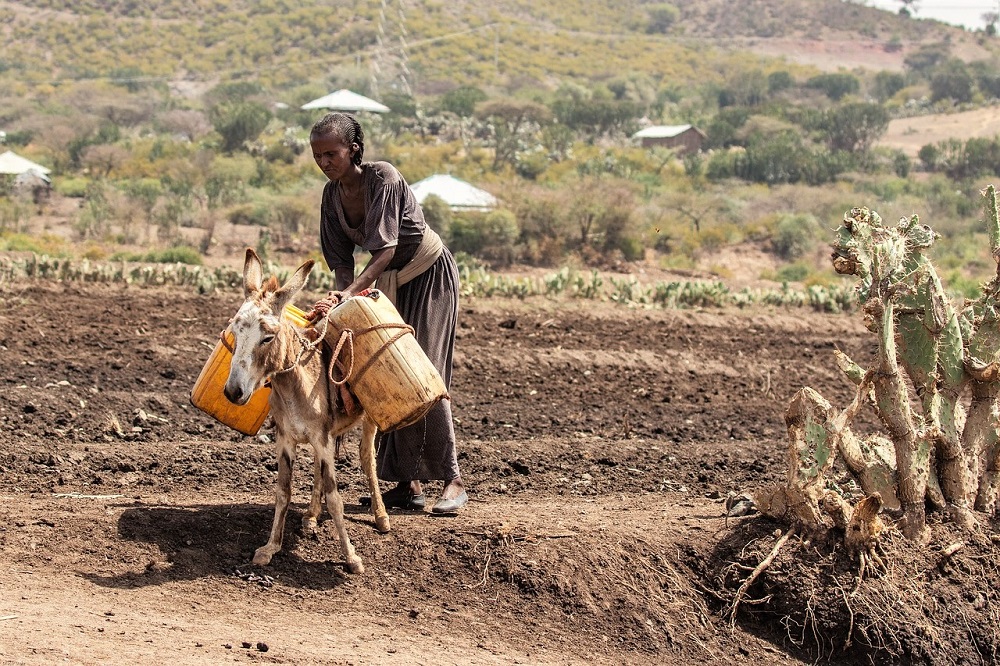
Access to data on soil health, agronomy and fertilizer based upon FAIR could be a ‘game changer’ in helping to create greater food security within Sub-Saharan Africa and South Asia who are already battling with the impacts of climate change, crop pests and diseases, writes Ruthie Musker, Project Officer – Data Policy & Practice at CABI, and Fiona Smith, Independent Contractor for CABI.
But allowing the agricultural industries of such countries access to data which is Findable, Accessible, Interoperable and Reusable is not without its challenges as CABI discovered as part of the “Enabling Data Access” project to support agricultural transformation in Ethiopia and India.
Funded by the Bill & Melinda Gates Foundation (BMGF), CABI and the Open Data Institute (ODI) has engaged with national stakeholders to support data sharing with the aim of supporting innovation and improving decision making in agriculture.
As part of this work we have endeavoured to publish a series of research outputs that included ‘Incentive systems for research data sharing in funded projects’ as well as looking at why data standards for soil are not taking root and improving data governance and access in Gates Foundation programmes.
In respect of incentive systems for research data sharing in funded projects, we embarked upon a literature review to unpack the common constraints to data sharing and potential incentives to overcoming these constraints.
Research data is often locked within closed research publications or sitting on a scientist’s computer without any thought to publish. Many researchers are hesitant to share research data because they don’t have time or funding to clean and make the data presentable, they have a strong desire to publish first to prevent ‘data poaching’, and they believe the processes for doing so are unclear.
However, research data is a massive resource for farmers to achieve food security. Research data is often collected at the small-scale level and collected by research institutions or universities that have a good relationship with the local agricultural systems.
We found that by delving into ‘value systems’ – the reasons why researchers or other organizations are working with data – can help us understand why organizations with different values respond differently depending upon the various incentives offered.

The incentives include recognising the good performance of individuals and organizations both formally (such as data citation) and informally – perhaps by publishing case studies or stories highlighting best practice.
However, a mixture of reward and penalty incentives offered in the context of strong funder and peer support and pressure, we suggest, is likely to be key in influencing behaviour change for improved sharing.
Ultimately, from our survey, we found that a combination of social, economic, infrastructural, and educational incentives is necessary to promote data sharing norms and behaviour among scientists.
Although it is not possible to provide a definitive ‘ranking’ of incentives, there is strong support across research disciplines and contexts for investing in trust and collaborative research networks, strengthening data infrastructure and tools, formal data citation and altmetrics to credit researchers, organizational policies mandating data sharing (supported by training and monitoring), and funders taking a greater involvement in developing and financing data management plans.
We also found that attitudes and practices towards data sharing differ between subject disciplines. For example, genomics or the earth sciences have more well-established policies and norms regarding data sharing, in contrast to the social sciences.
In addition, we identified some variations in attitudes to data sharing between high-and low-income countries. This suggests that incentive systems in a given institution or project need to be tailored to the research environment, available resources and skills, and type of research – as well as the personalities and cultural norms of researchers.
Funders, journal publishers, and research institutions need to come together to support a more harmonized approach towards data sharing at a policy level. At an individual project or network level, there needs to be an appreciation for different strategies that can support data sharing norms and behaviour within that context.
At the same time, well-resourced data infrastructure is needed to support scientists with the practical aspects of data management, sharing, publication, and long-term preservation.
Additional information
Main image: Thesharing of research data – which is valuable in terms of soil health, agronomy and fertilizer for healthy and productive crops – has shown to improve the findability of data and prevent duplication of effort (Credit: Pixabay).
Full report reference
Ruthie Musker and Fiona Smith, ‘Incentive systems for research data sharing in funded projects,’ 20 May, 2021.
https://gatesopenresearch.org/documents/5-84
Relevant project and Data Sharing Toolkit
CABI is working with the Open Data Institute (ODI) to help facilitate better data-driven decisions within the investments of Bill & Melinda Gates Foundation (BMGF) Decision Agriculture and the national systems in which the investments operate.
Tools, guidelines and recommendations on how to manage soil and agronomy data, and data sharing best practice, have been developed to support national systems in India and Ethiopia.
This includes the Data Sharing Toolkit – developed in collaboration with senior officials and academics in the aforementioned countries. It equips development practitioners (Gates’ programme officers, their grantees, partners and other donors) with the necessary skills to develop better grants that will foster more access to agricultural data.
For more details see the project page ‘Enabling data access to support innovation in decision agriculture: soil health, agronomy and fertilizer.’
Related News & Blogs
CABI shares expertise in data policy and practice at international data conference in India
CABI has shared its expertise in data policy and practise at the International Conference on Open and FAIR Data Ecosystem Principles, Policies, and Platforms held in New Delhi, India from 11th – 13th September 2023. Arun Jadhav, Manager – Digital Devel…
21 September 2023




